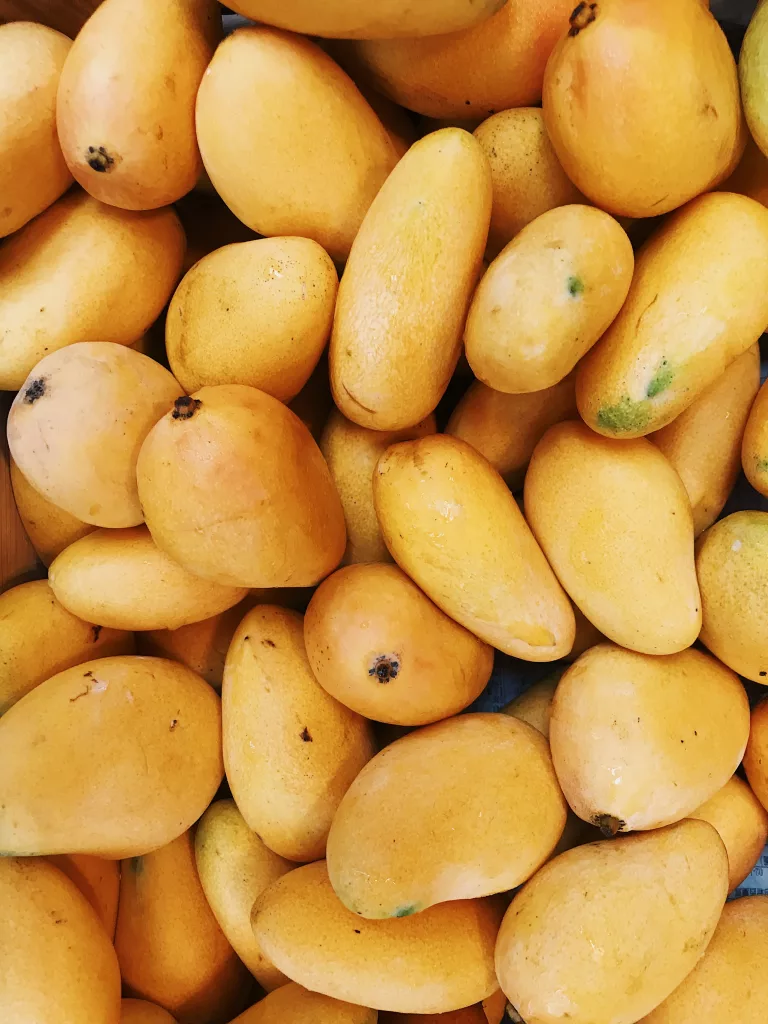Can you recall ever having a mango? Very delicious, wouldn’t you agree? There are several health benefits of mango, some of which you may not be aware of, in addition to its delicious flavor.
The mango (Mangifera indica) is a drupe, or stone fruit, because it contains a large seed in its center. Mangoes are low in fat (about 207 calories for an entire mango) and contain over 20 different vitamins and minerals (including abundant amounts of vitamins A and C).
The cultivation of mango dates back more than 4,000 years and can be found in its native regions of India and Southeast Asia. There are literally hundreds of different mango varieties, all with their own unique flavor profiles, textures, sizes, and colors.
Mangoes were once thought of as exotic, but their widespread availability and widespread use today attest to their widespread popularity and adaptability in the kitchen. The health benefits of mangoes are impressive no matter which variety you choose to purchase. Here are 10 Health Benefits Of Mango Everyone Should Know.
See What Are The Health Benefits of Mango Below:
1. Increased resistance to disease
Mango has nutrients that help strengthen the immune system. Mango has 10 percent of your daily recommended intake of vitamin A in just one cup (165 grams). Having a strong immune system requires vitamin A. Vitamin deficiency has been linked to an increase in infection. More than half of the vitamin C you need for the day can be found in just one cup of mango (165 grams). Your skin’s defenses will be bolstered and your immune system strengthened because of the vitamin’s role in stimulating the production of white blood cells, which fight off infections.

2. Encourage a healthy cardiovascular system
In addition to helping your heart, mangoes have other health benefits. As a rich source of magnesium and potassium, they contribute to cardiovascular health by maintaining a regular heart rate and reducing the risk of hypertension. As an added bonus, mangiferin, which is found in mangos, has shown promise in preliminary research for reducing inflammation in the heart.
3. Maintain the Health of Your Hair and Skin
About 75% of the recommended daily value for vitamin C can be found in just one cup of mango. Collagen is a tissue that gives skin its elasticity and helps prevent wrinkles and sagging, and this nutrient is essential for its production. Mangoes’ vitamin A is necessary for the maturation and health of epithelial tissues like skin, hair, and sebaceous glands. The latter, found in close proximity to hair follicles, play an important role in maintaining the hair’s natural moisture and health.
4. Ensure that your digestive system is healthy
Mango consumption is associated with an increase in digestive-aiding gastric secretions and healthy fatty acids. Mango has about 3 grams of fiber per cup, or about 10% of your daily value. A high-fiber diet has long been thought of as essential for good digestion. Mangoes, in particular, were found to dramatically enhance bowel regularity and stool consistency, two symptoms of constipation.
5. Beneficial for the Eyes
Mangoes’ vitamin A and beta-carotene content may be beneficial to eyesight. Vitamin A deficiency can cause blindness in its most extreme forms. Getting enough vitamin A is good for your eyes. It’s important for the cornea to have enough of this vitamin because of how well it helps it function. Lutein and zeaxanthin are two of the most abundant carotenoid pigments in the human retina. Mangoes, like other colorful fruits, are a great way to get your daily dose of zeaxanthin, an antioxidant that has been shown to benefit eye health.

6. May help reduce the likelihood of developing certain types of cancer
The beta-carotene found in mangoes gives the fruit its characteristic yellow-orange hue. Mangoes contain numerous antioxidants, including the carotenoid beta-carotene. Researchers have found that the antioxidants in mangos help neutralize cancer-causing free radicals.
Furthermore, polyphenols, which have been linked to potential cancer-fighting effects, are abundant in mango. Several different cancers have been linked to oxidative stress, which may be mitigated by polyphenols.
7. Promotes a more restful night’s sleep
Vitamin B6 is found in mango and is essential for the synthesis of sleep-inducing neurotransmitters like GABA, tryptophan, and serotonin. The brain makes its own supply of GABA, an amino acid. An increase in GABA levels has a calming effect by suppressing the CNS and lowering excitability. The amino acid tryptophan aids in the creation of serotonin, also known as the “happy hormone,” which has a calming effect. This is why low levels of vitamin B6 can cause mood swings, trouble sleeping, and irritability.
8. Silkier skin
Your skin’s health and appearance can be improved from the inside out by eating mango. Vitamin C, which is abundant in mangoes, is important for skin health and may even slow the visible effects of aging. Mango’s carotenoid content also has the potential to improve skin health. It is believed that beta-carotene acts as a photoprotective agent by inhibiting the photochemical reactions that occur in the epidermis when exposed to UV light.
9. Promotes Optimal Fetal Growth
There are many nutrients in mango that are beneficial to your baby’s growth and development. This wonderful fruit is an excellent source of many important nutrients; just one cup provides a significant amount of vitamin C, vitamin A, vitamin B6, and folate, to name a few.
10. protection from the harm caused by free radicals

Many chronic diseases and the aging process, in general, have been linked to compounds called free radicals. Mangoes have a lot of antioxidants that help protect cells from free radical damage. These include beta-carotene and vitamin C. Phytochemicals, compounds found in plants and thought to have positive effects on health, can be found in these foods as well.
Several health benefits of mango have been linked to it due to its abundance of vitamins, minerals, and antioxidants; these benefits include a possible reduction in cancer risk, enhanced immunity, better digestive health, and sharper eyesight. Mangoes can also be prepared in a variety of tasty ways that are appropriate for each and every meal of the day, ranging from breakfast to snacks to desserts. Since mangoes are a fruit that tends to be on the warm side, it is recommended that you consume them only after first letting them sit in water for at least an hour prior to eating them.
Did you find this helpful? Let us know in the comments.
Disclaimer: This is for informational purposes only.
You can also visit our Facebook and YouTube pages to know more about plants and their health benefits.
Source: Healthline
You might also like:









1 thought on “10 Health Benefits Of Mango Everyone Should Know About”